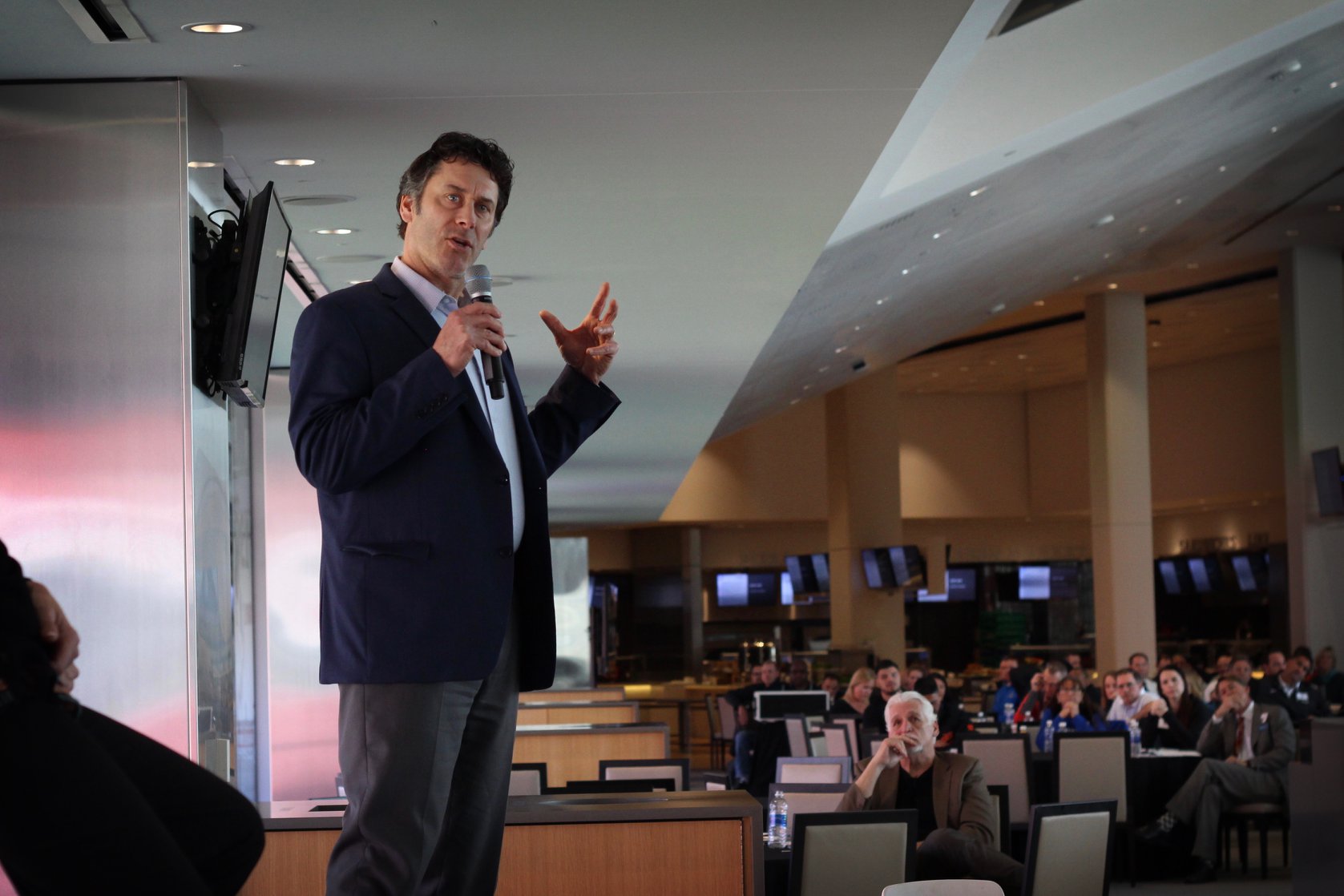
Sports and activities make BHS students’ lives better
Sports and activities enhance the educational mission for students at Brainerd High School.
This was the emphasis BHS Activities Director Charlie Campbell sought to get across Monday to the Brainerd School Board during his activities update. Typically, Campbell reports on the participation numbers, but this time he wanted to address the “bigger picture” on the direction/focus of the sports and activities programs.
“I need (board members and district administrators) to understand what I see and feel as that is how systems can operate,” Campbell said in a telephone interview Tuesday. “I can talk about participation numbers, which haven’t changed that much. Some numbers are down but there are so many more activities for kids to be in now and is this really that important to talk about? I think it is more important to talk about what are we doing to change kids lives and what our focus is. And that is what I wanted to communicate with the board.”
Campbell said a concern that has grown over the years that has started to impact the coaches in a big way are the pressures that are brought by big-time collegiate and professional sports, which are performance and entertainment based and for profit. He said the high school is getting in the middle of these professional sports and what they call the “youth sports model,” which is to play to win.
An illustration of this concern was brought to the forefront this school year when Warrior head boys basketball coach Scott Stanfield resigned, citing “general dissatisfaction, anger and/or hostility from an increasing number of parents.”
“This is not a Brainerd issue or a Brainerd basketball issue,” Campbell said. ‘Every high school in Minnesota is dealing with pressures of getting caught in the middle of these big-time collegiate sports and then the youth sports model. … I want people to know that we exist to grow and develop kids.”
Campbell told the school board years ago he was invited to take part in an education/coaching planning meeting with the Minnesota State High School League and they developed an entire coaching curriculum around a book called “InSideOut Coaching” by Joe Ehrmann, who is a retired NFL star and a former Syracuse University All-American player. According to the book description, “Joe Ehrmann describes his coaching philosophy and explains how sports can transform lives at every level of play, from the earliest years to professional sports. Ehrmann has taken his message about the extraordinary power of sports all over the country.”
Campbell said there are four questions in the book that every coach should answer: Why do I coach? Why do I coach the way I do? How does it feel to be coached by me? How do I define success?
“It’s about creating purpose and if we don’t do that then we wouldn’t be here,” Campbell said. “Our program exists to enhance the education mission at the high school. If it didn’t (enhance the lives of students) then there would be no place for it here and you would be wasting your resources. But I can assure you—you are not because we do enhance the education mission of the high school, but we are being squeezed culturally by big-time collegiate professional sports … and the youth model.”
Campbell said the coaches at BHS are residents in the community and want what’s best for the students. He said the administration’s job is to give them the tools they need to be more successful.
“I have my tough days on my job and it’s always good to fall back on a purpose,” Campbell said. “Otherwise the long days can get longer.”
Campbell said there is a five-step implementation pathway for activities: Having goals and a purpose, to have an individual purpose statement, a collective purpose statement, to define success and a coach’s job description.
“I lead to support education-based activities by living and loving with passion and courage,” Campbell said. “Winning is the goal, but it’s not our purpose.
“Our purpose is teaching life lessons through sports.”
Campbell said less than 3 percent of high school athletes will play beyond high school at any level. This means the school needs to offer an experience to the other 97 percent of the athletes.
“Some kids will play a lot and some won’t play at all, but we value each and every one of them as they show up to our program.”
Campbell said Brainerd has core values they live by, which include having grit, being caring, respectful, positive, responsible and trustworthy. He said having grit has nothing to do with how good a student is or anything to do with skills. It has to do with having perseverance and having a toughness, which Campbell said are important skills to survive in life.
“We cannot teach these things if we can’t model them,” Campbell said. “The No. 1 way is we want to win and we want to compete with grit. But we need to be careful as that is not the only way we define success. We want to maintain an environment and want students to be in our programs. We want our teams to overachieve. We want them to be consistent, to have a work ethic and take great pride in how they compete.”
